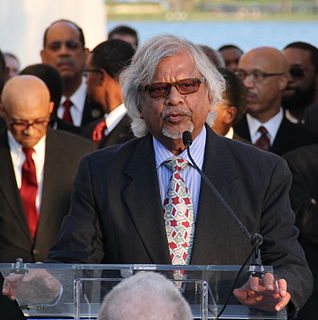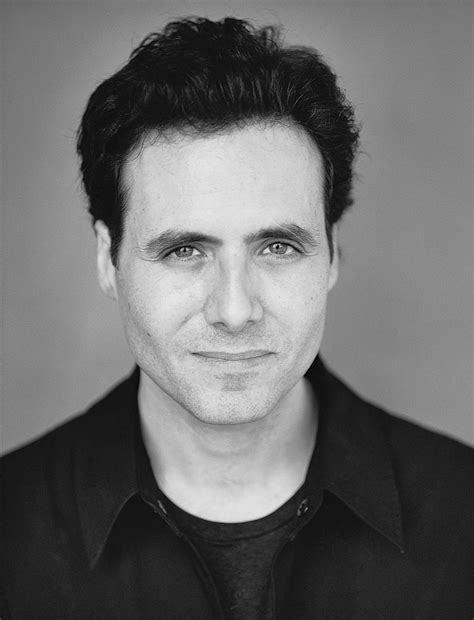A Quote by Adam Yauch
I think the really significant part of it for us, for the western world, is we have a lot to gain from the Tibetans - there are certain lessons that are within Tibetan culture. I mean understandings of compassion and of nonviolence that are things that we really lack in our society.
Related Quotes
Psychopaths are actually, really, really, really rare in our culture, are people who don't... Or in society, in the world. They're people who don't feel guilt. They're people who don't feel fear. I think that most of us feel those things. There's a kind of... They're almost like superheroes. Not to glorify them, but you know what I mean?
J.K. Rowling said Bellatrix's role was going to be significant in the last one, when I showed some reluctance in playing a tiny bit part. Up front, they said, 'You're very significant in the last one.' But significant could mean a lot of things. That could just mean a significant plot point. Doesn't necessarily equal big part.
There are a lot of voices inside of us. We have the voices of our parents, our grandparents, our society, our bosses, our own should's and shouldn'ts, and our self-worth is in us, controlling us a lot. When we can get past all of those, and get to the deep, core part of us, there's a voice within our soul that I believe is connected to our Divine or Higher Self. That voice within is there to guide us through all aspects of our lives.
I think there's the apparent lack of subtlety and sort of make-believe anti-sensibility connected with American art. I think this is a style, and it does relate to our culture, and I think it would be anachronistic maybe to pretend to be involved with subtle changes and modulations and things like that, because it's really not part of America.
I think there ought to be some serious discussion by smart people, really smart people, about whether or not proliferation of things like The Smoking Gun and TMZ and YouTube and the whole celebrity culture is healthy. We've switched from a culture that was interested in manufacturing, economics, politics - trying to play a serious part in the world - to a culture that's really entertainment-based. I mean, I know people who can tell you who won the last four seasons on American Idol and they don't know who their [bleeping] Representatives are.
I think we all mistake certain things for happiness. I think we mistake comfort for happiness and we mistake pleasure for happiness, and entertainment for happiness, when really these are just things we use as proxies for our happiness. We use them to cheer us up or try and achieve brief happiness, when really happiness is something much more profound and long lasting and exists within us.
I think Hamas should be challenged to consider really embracing Gandhi and Dr. Kings philosophy of advocating nonviolence as a way to achieve self determination, end occupation, achieve unity within their country, and gain allies within Israel. I think this idea of an eye for and eye, a rocket for a bomb, will never bring about peace for either side.
So many people around the world have used nonviolence as a way to resolve a conflict that they faced in their lives. And they continue to use it everywhere all over the world there. And I think, in a way, nonviolence is our nature. Violence is not really our nature. If violence was our nature, we wouldn't need military academies and martial arts institutes to teach us how to kill and destroy people. We ought to have been born with those instincts. But the fact that we have to learn the art of killing means that it's a learned experience. And we can always unlearn it.
Women have been trained in our culture and society to ask for what we want instead of taking what we want. We've been really indoctrinated with this culture of permission. I think it's true for women, and I think it's true for people of color. It's historic, and it's unfortunate and has somehow become part of our DNA. But that time has passed.
The problem that faces us is the problem of awakening. What we lack is not an ideology or doctrine that will save the world. What we lack is mindfulness of what we are, of what our situation really is. We need to wake up in order to rediscover our human sovereignty. We are riding a horse that is running out of control. The way of salvation is a new culture in which human beings are encouraged to rediscover their deepest nature.
In opposing we always talk about freedom in the Western world, Muslims always talk about justice. Very often we mean the same thing. But what we do mean, what in the Western world we call human rights, in the Islamic world, they don't talk about rights. Now they do, but in the past they didn't. It wasn't part of their terminology. But really it's the same thing.
I think you can blame certain police officers for certain behavior, you can blame certain departments for certain behavior, and power and so forth, but, ultimately, I'd say it's about us, and it's about society, and I say - even if its sounds a little controversial - put the police aside for a second. It's really not about them. It's about the game that's been created to keep the status quo going and to let the people who own it all gain from the game.
David Foster Wallace: I think one of the insidious lessons about TV is the meta-lesson that you’re dumb. This is all you can do. This is easy, and you’re the sort of person who really just wants to sit in a chair and have it easy. When in fact there are parts of us, in a way, that are a lot more ambitious than that. And what we need, I think—and I’m not saying I’m the person to do it. But I think what we need is seriously engaged art, that can teach again that we’re smart. And that there’s stuff that TV and movies—although they’re great at certain things—cannot give us.




































